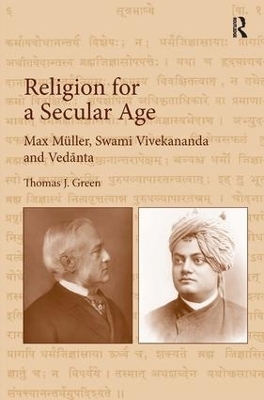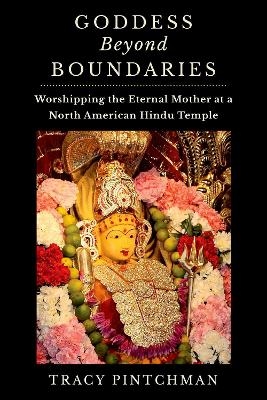
Religion for a Secular Age
Max Müller, Swami Vivekananda and Vedānta
Seiten
2016
Routledge (Verlag)
978-1-4724-6292-3 (ISBN)
Routledge (Verlag)
978-1-4724-6292-3 (ISBN)
Provides a transnational history of modern Vedanta through a comparative study of two of its most important exponents, Friedrich Max Muller (1823-1900) and Swami Vivekananda (1863-1902).
Religion for a Secular Age provides a transnational history of modern Vedānta through a comparative study of two of its most important exponents, Friedrich Max Muller (1823–1900) and Swami Vivekananda (1863–1902). This book explains why Vedānta's appeal spanned the ostensibly very different contexts of colonial India and Victorian Britain and America, and how this ancient form of thought was translated by Muller and Vivekananda into a modern form of philosophy or religion. These religiously-committed men attempted to reconcile religion with modernity by appealing to Advaita (literally, 'non-dualistic') Vedānta's monistic interpretation of reality. The 'scientific' study of religion allegedly demonstrated the evolutionary superiority of Vedānta and the possibility of religion's survival in 'the light of modern science'. They believed Vedānta could also provide the religious basis for moral engagement in this world, even as the hold of orthodox Christianity and traditional Hinduism appeared to be weakening. Vedānta thus served as a way of articulating a form of religion suitable for a secular age – religion which has embraced modern forms of thought while breaking away from creeds, scriptures and institutions to thrive in the spheres of public debate of London, Calcutta and New York.
Religion for a Secular Age provides a transnational history of modern Vedānta through a comparative study of two of its most important exponents, Friedrich Max Muller (1823–1900) and Swami Vivekananda (1863–1902). This book explains why Vedānta's appeal spanned the ostensibly very different contexts of colonial India and Victorian Britain and America, and how this ancient form of thought was translated by Muller and Vivekananda into a modern form of philosophy or religion. These religiously-committed men attempted to reconcile religion with modernity by appealing to Advaita (literally, 'non-dualistic') Vedānta's monistic interpretation of reality. The 'scientific' study of religion allegedly demonstrated the evolutionary superiority of Vedānta and the possibility of religion's survival in 'the light of modern science'. They believed Vedānta could also provide the religious basis for moral engagement in this world, even as the hold of orthodox Christianity and traditional Hinduism appeared to be weakening. Vedānta thus served as a way of articulating a form of religion suitable for a secular age – religion which has embraced modern forms of thought while breaking away from creeds, scriptures and institutions to thrive in the spheres of public debate of London, Calcutta and New York.
Thomas J. Green was awarded a PhD from the University of Cambridge for his doctoral research on Swami Vivekananda and Max Muller. He has also conducted research on the New Dispensation movement in nineteenth-century Calcutta.
Preface; Introduction; Foundations; The Science of Religion and Religion as Science; Vedānta in Defence of religion; Vedānta and the Religious Foundation of Ethics; Ramakrishna, Vedānta and the Essence of Hinduism; Conclusion; Bibliography; Index.
| Erscheinungsdatum | 09.04.2016 |
|---|---|
| Verlagsort | London |
| Sprache | englisch |
| Maße | 156 x 234 mm |
| Gewicht | 408 g |
| Themenwelt | Geisteswissenschaften ► Religion / Theologie ► Hinduismus |
| ISBN-10 | 1-4724-6292-0 / 1472462920 |
| ISBN-13 | 978-1-4724-6292-3 / 9781472462923 |
| Zustand | Neuware |
| Haben Sie eine Frage zum Produkt? |
Mehr entdecken
aus dem Bereich
aus dem Bereich
Worshipping the Eternal Mother at a North American Hindu Temple
Buch | Hardcover (2024)
Oxford University Press Inc (Verlag)
79,80 €


